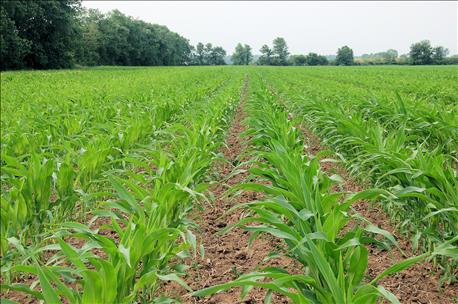
Indiana farm Bureau has led the charge to stop the escalation of your property tax bill on farm land for the past several years. This session it appears there is a real opportunity to not only stop the escalation, but hold the line and set the stage for real tax relief in the future. And although just past the halfway mark in this session, that looks promising, Katrina Hall says it’s not ‘over until it is over.’

PROTECT YOUR INTERESTS: Legislators need to hear why you can no longer pay an ever-increasing amount in property taxes on farmland.
“We need farmers to talk to their legislators now more than ever,” says Hall, chief lobbyist for Indiana Farm Bureau, Inc. “They’ve heard from us and they seem to be hearing the message, but there is a long way to go. What helps the most is when they hear from constituents.”
Hall says they need to hear from you that with declining commodity prices, there just isn’t enough revenue to continue paying ever-increasing property taxes on farmland. Even if you don’t own farmland yourself, you’re impacted because your landowner must pay it.
Bills that are moving so far in this session would make some important changes, Hall says. One would end the controversy over the soil productivity increase once and for all. For the past four years, Indiana Farm Bureau has helped stop the Department of Government and Local Finance from changing soil productivity indexes. The net effect would be an increase in property taxes on farmland. The first year after it was proposed, Indiana Farm Bureau says it saved farmers $57 million in that year alone.
“The trouble is we have had to come back and ask for legislation to stop it each year,” Hall says. “Bills moving now would leave indexes where they are until the legislature itself decides to change them at some future point.”
Bills are also moving that would make changes in the formula that determines the base value for farmland. There would still be a formula, Hall notes, but the calculations would be based on years closer to the year of the taxes, instead of four years behind. That would help reflect a more realistic picture of economic conditions in agriculture and what farmers could afford to pay.
Be sure to contact your legislator as soon as possible, she concludes.
About the Author(s)
You May Also Like




